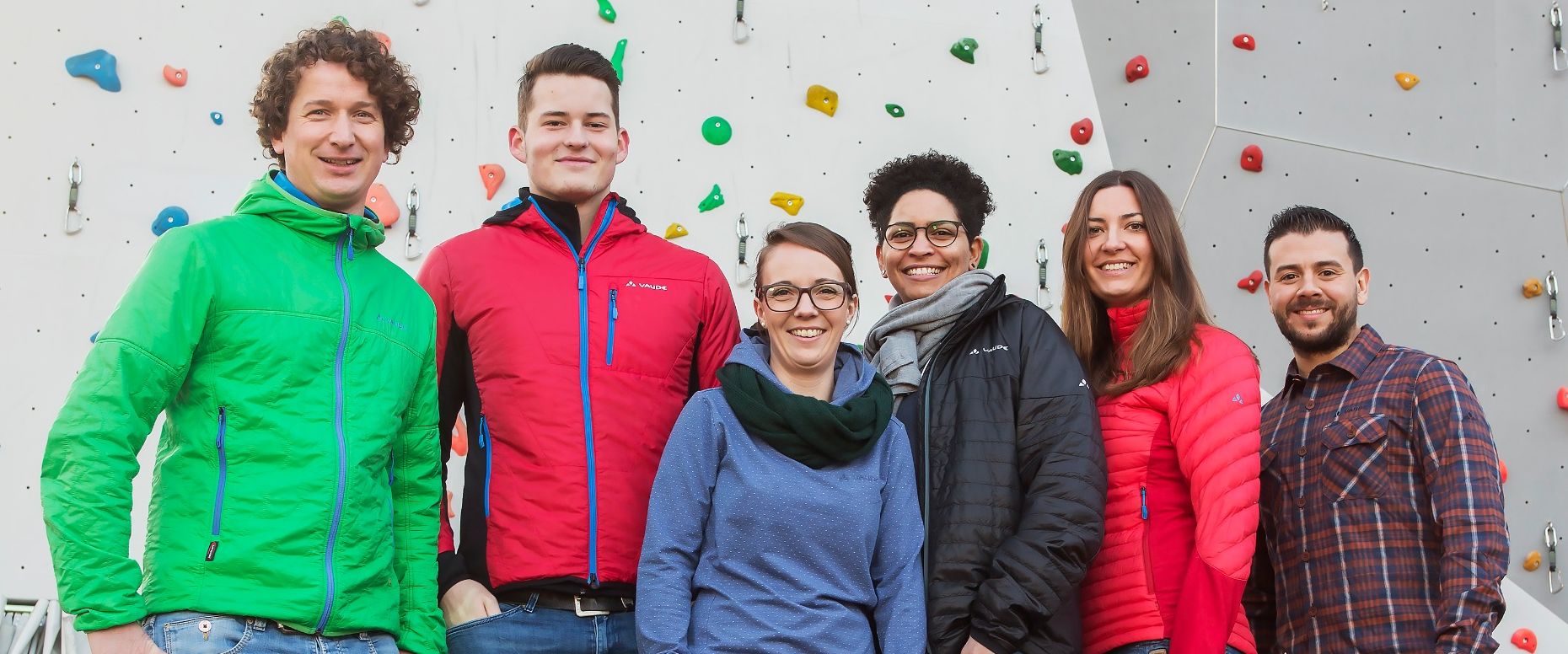
A foundation of trust
Want to know how we do it?
- We provide training for our employees and managers so that their collaboration is based on cooperation and equal standing rather than hierarchy and rigid rules. Creating relationships that are active and constructive is of central importance.
- We set great store by transparency and the active participation of our employees. We make this possible through our social intranet (Camp), common open spaces, workshops and information events.
- In March, Amseln Grün honored VAUDE with the Soul@Work Award for good leadership.
- Everyone is invited to actively participate in our Idea Management Program, “Steps”.
- We work together to create a self-directed organization. This means, for example, that restructuring is usually developed and implemented with the participation of stakeholders rather than from the top down.
- Interdisciplinary, cross-hierarchy and self-directed collaborations are encouraged and promoted.
Want the specifics?
VAUDE is a highly values-based company and we live out these values in our daily interactions. Trust is one of our core values: We trust our employees and support, encourage and challenge them so that they are able and motivated to perform their best.
This confidence is the foundation for a trusting and appreciative form of cooperation between companies and employees. At the same time, it facilitates growth and development on both sides.
Our culture of trust is based on the assumption that our employees will value this trust, will be committed to their work, and will act appropriately. Specifically, this means that we assume our employees will live up to the trust that is placed in them and that they will in turn have confidence in the company. We reviewed these assumptions in a study by the University of St. Gallen, Switzerland, in 2015, which – in their interpretation – identified VAUDE as a "Trust Organization." Satisfied employees are motivated.
Our Wegweiser Code of Conduct was jointly developed and made available to all employees in 2016.

»Our culture of trust is often real (and time-consuming) interpersonal work. It pays off in appreciative and creative working relationships.«
We trust all employees
- We understand the fundamental importance of trust for a modern, innovative, and sustainably oriented company. Likewise, we understand the positive importance of trust for human development: Employees feel safe and comfortable when they experience trust.
- Our culture of trust is an essential part of our corporate culture and values and the two interact with each other.
- We understand the diverse components that need to be established in terms of a lived culture of trust and are aware of the important role that the company management has in this process.
We are aware that this makes us vulnerable as an organization. In this regard, we rely on our employees and count on them to return this trust. We also have the means to identify breaches of trust and can react appropriately when needed.
In 2015 we developed a process with various focal points and escalation levels for our employees to identify potential conflicts and defuse them through dialog. This process has been used successfully many times since, and is an indication that the defined process actually works. More drastic violations are treated with the current legal instruments for employees (warnings, termination).
Furthermore, most of our employees have participated in the training series "Self-efficacy as a basis for trust and innovation." (Training and professional development) and some groups, such as our employee representatives, have also taken part in an enhanced, role-specific form. The fundamental idea is that these “culture bearers” become established as trustworthy contact persons. Potential conflicts can thus be identified at an early stage. We have already had good experience with this. For example, in the past, conflicts could be identified in teams and defused by means of coaching and team development.
Our employee representatives
In 2016, at the request of our employees, we held the first election of an official employee representative from the management and human resources division. In December of the same year, 5 employee representatives were elected, who would initially remain in office for four years. This team is supplemented by the respective elected spokesperson of our trainee personnel.
In an intensive workshop and/or team coaching session, the employee representatives developed guidelines and standards for their own working methods and the execution of their role(s). Since then, they have been in close contact with the company's management, are involved in decision-making processes, represent the concerns of employees and play a mediation role in conflict situations.

Transparent communication
A culture of trust also requires, for example, that organizational changes affecting our employees be announced in a timely manner.
There are no minimum notification periods for this. All organizational changes such as new positions, internal job changes or reorganization of departments are published on the internal online communication platform (Camp), which all employees have access to.
This is also where changes to occupational safety laws which require public notice, are automatically made available every year by the Arbeitgeberbibliothek (a German Internet platform.)
In addition, every employee can also actively participate in communication on our intranet. All content can be commented upon and rated. Furthermore, all employees are able to create their own content and they take advantage of this opportunity regularly.
| GRI: | 402-1 |
| GRI: | 103 |




